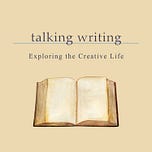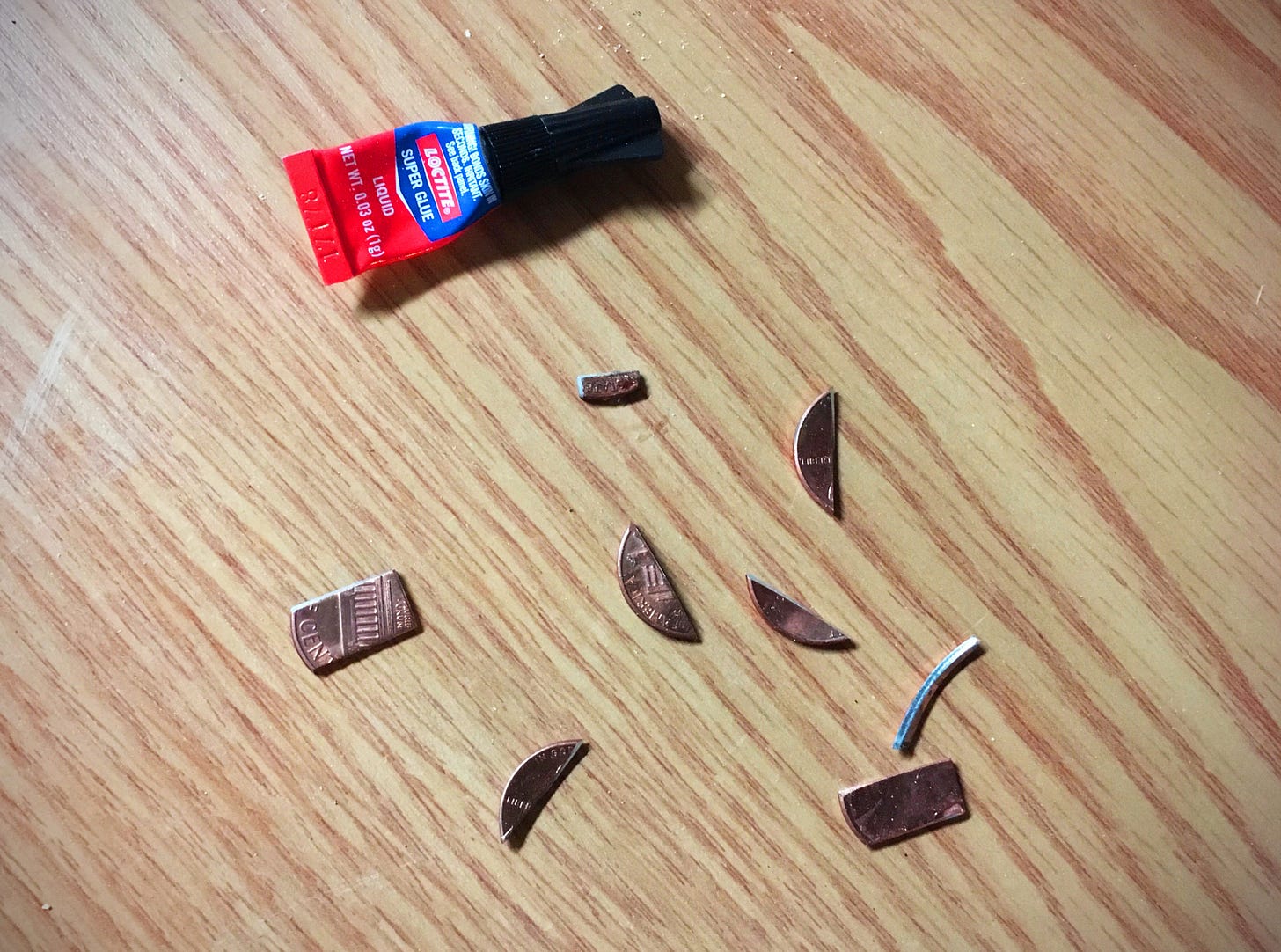My work situation has mutated a lot during the course of working on this project. For most of the first half, I worked part-time as an annotator at the Linguistic Data Consortium (LDC) while actively touring and playing in Grandchildren. After that, I worked full-time as a video engineer at George Blood Audio/Video/LP while still doing Grandchildren and art selection for Talking Writing. During that time, I also got married, bought a fixer-upper, and started teaching myself how to renovate. When my wife got pregnant, it was decided that I would stay home with the kid. I began focusing on remote work that I could do during the brief child care downtime, so I went back to the LDC and increased my role at Talking Writing.
Throughout all of this, I have been chipping away at Weird Music in the cracks between my other duties. While I was single and renting a room in a house, I worked on the live music every night and spent the hours until bedtime editing and working things through on the computer. During renovations, I’d set up all my gear in a room that wasn’t finished but wasn’t actively being worked on, rotating my practice space around the house while I completed each room. When I recorded the final audio version of Weird Music, I recorded most of the horns during my son’s nap times and then recorded the bass and keyboard at night.
Trying to figure out a balance between your work, personal, and artistic lives can be a huge challenge. I think part of the romanticism that people have about being an artist comes from the misconception that they just get to make art all day. In On Writing, Stephen King said that something like 5% of artists make their living off of art, which seems high from my experience. I think it’s really important to emphasize that the vast majority of artists create in addition to the same daily responsibilities that nonartists have.
I sometimes fall into thinking that this struggle is particular to our current society, but that’s totally not true. In Musicophilia, Oliver Sacks uses a quote from Memoirs by Hector Berlioz that speaks directly to this point. While he was struggling with his wife’s medical expenses, he got an idea for a symphony but resisted writing it.
I shall spend perhaps three or four months on the work (I took seven to write Romeo and Juliet), during which time I shall do no articles, or very few, and my income will diminish accordingly. When the symphony is written I shall be weak enough to let myself be persuaded by my copyist to have it copied, which will immediately put me a thousand or twelve hundred francs in debt. Once the parts exist, I shall be plagued by the temptation to have the work performed. I shall give a concert, the receipts of which will barely cover one half of the costs—that is inevitable these days. I shall lose what I haven’t got and be short of money to provide for the poor invalid, and no longer able to meet my personal expenses or pay my son’s board on the ship he will shortly be joining.
Memoirs was published in 1878 and could just as easily have taken place today. Even as I write this, I’m going through the same dilemma, only without risking the security of my family. Putting out the Weird Music album, booking and playing shows, and compiling this podcast series has all been at the expense of doing work that I could be getting paid for. And when it’s done, I need to pivot and focus on paid work in order to get back on track.
Check out the Weird Music album on Bandcamp, iTunes, Apple Music, Spotify, and all other places where you can find music. For transcripts to these episodes, visit my personal Substack.
I’ve never been paid any significant amount of money from music. Throughout my adult life I’ve worked either part time or full-time hours while also trying to keep music a priority. A cycle has repeated itself over and over again where I’ll prioritize art for a stretch of time while still working but at a lesser degree, then I’ll get sick of never having any money and prioritize my paid work until I’m solvent again. After working for a long time, I’ll start feeling like having the money isn’t worth ignoring my artistic drive and fall back into creativity until I have no money again.
This has somewhat changed since getting married and having a child. My wife has always been passionate about her work, and I’ve attained more stability because of that. For the past five years I’ve been a stay-at-home parent and my challenge has been to balance fatherhood, part-time work, and my art. In practical terms it’d make the most sense to just stop trying to make the art, but I feel like I’d be giving up a sense of meaning and purpose that would impact my mental health.
On a societal level, the lack of financial support or compensation for art means that it’s often the first thing to drop out of people’s lives as they get older and their responsibilities increase. Even though it can be difficult, I think it’s very important to continue practicing art as you age, but that can sometimes be an unpopular opinion. Or maybe it’s a popular opinion that rarely gets heeded because no one feels like they have enough time.
On the one hand, I worry that the lack of funding for and devaluation of the arts is making it a less important part of our daily lives. But on the other hand, the sheer volume of people out there making art despite the hurdles, and the fact that art is getting consumed at higher levels shows me that it’s still a necessary function of being human.
For information about these interviews and the people in them, please visit this post from my personal Substack.














Share this post